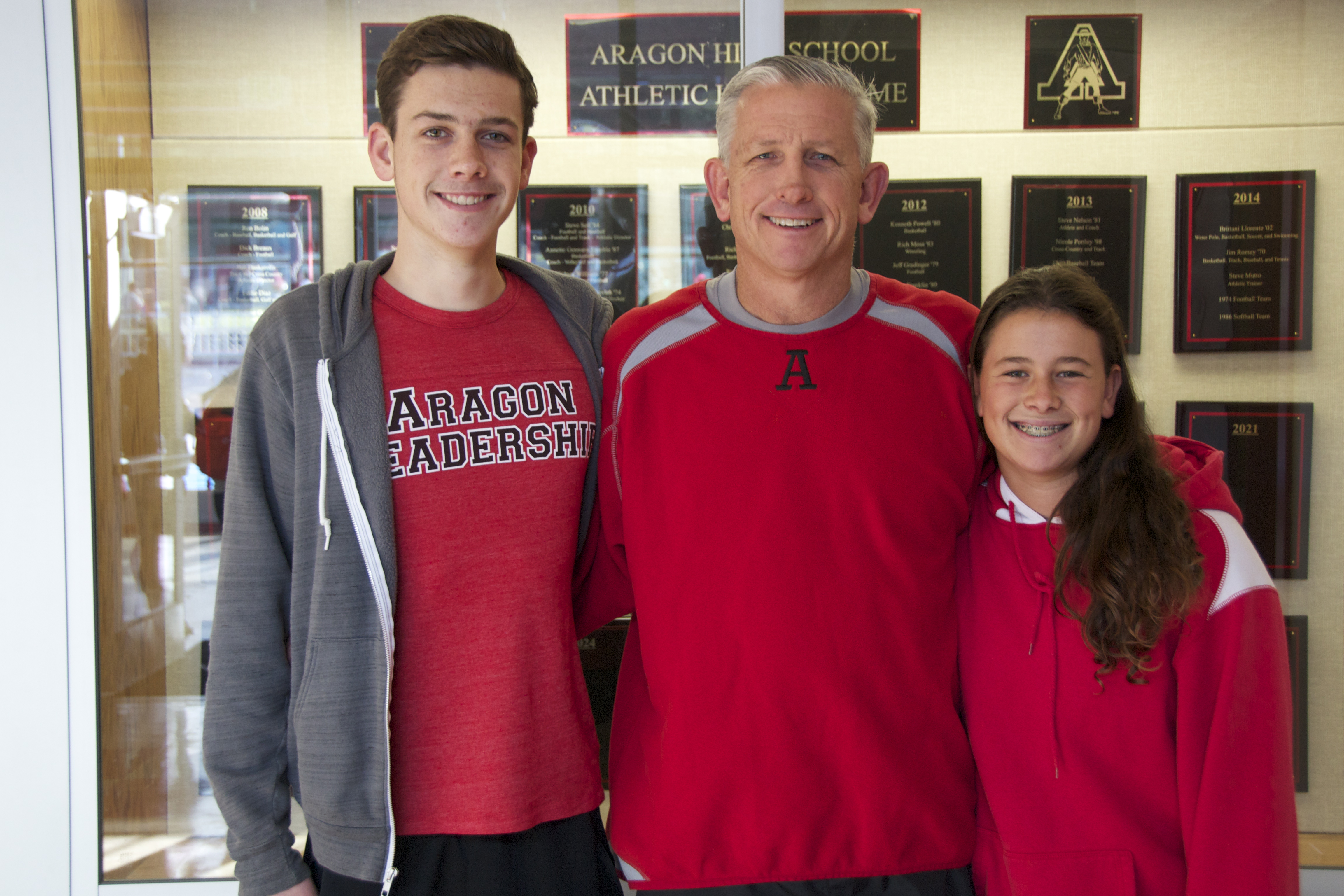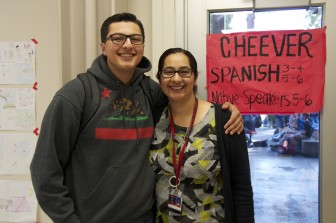
“Now, we’re much closer. Before I would just drop him off and pick him up from school, and our schedules were very busy, so we wouldn’t didn’t have a lot of time to spend together. Now, I really enjoy the time we have, and we’re somewhat making up for lost time,” says Spanish teacher Alejandra Cheever about her son, junior Oscar Carlos.
Like Cheever, other Aragon teachers have children who are currently or will be Aragon students. Although a recently implemented policy will prohibit students from taking classes from their parent, the realities of always having one’s parent or child nearby affect both individual’s experiences.
With their parents constantly around, students may feel more restricted in the school environment. Freshman Maria Sell says, “More teachers know who you are, so they might have higher expectations. Also if I’m doing anything bad, they [parents that are teachers] would be the first to know.”

To address the potential limitations, athletic director Steve Sell says, “I feel that my kids might lack privacy, so I’m careful of staying out of their ways.”
Despite this, the presence of a parent on campus may make it easier for a student to receive guidance. English teacher Dena Johnson, whose son attends Mills High School, says, “[When your parent works at Aragon] there is an independence that does not happen. It’s easier with a parent always there to help.”
Having such a parent with better connections and knowledge about Aragon may also improve a child’s experiences or interactions at school. Maria Sell says, “I do feel more connected to the school. Since I’ve been one, I’ve known the community at Aragon. Also, the football players are really nice to me and always say ‘hi’ in the hallways.”
When asked whether being a teacher on campus influences how others treat their child, Steve Sell says, “Probably — it’s foolish to say it doesn’t. It’s human nature. The athletes especially don’t want to be mean to the athletic director’s kids, mentally that’s what’s they’re thinking.”
Although the arrangement does affect interactions, teachers still strive to keep their personal and professional lives separate. Cheever says, “Being at school, you would think that I would be a more proactive parent and see more of what’s going on [academically]. But, I tend to stay out of the teacher’s space. I know how busy they are, and I don’t want to abuse my powers. I make sure I’m respectful by emailing them, setting up a conference, and then talking about my child.”
The relationship between parent and child may benefit from the additional time spent together. In Maria Sell’s case, her relationship with her dad grew deeper, as she says, “I think we are closer. Now we get to spend more time together and see each more often. He also brings me lunch, so whenever I see him I’m really happy.”
However, Johnson says, “Spending so much more time with one another, you know each other better. This could either deepen their connection or make a rift.”
Outside the classroom, parent teachers may be more conscious of their behavior. Sell says, “I make sure what I do is okay as a teacher and a parent. I treat all the kids as how I want my kids to be treated.”
With their parents on campus, students may have an easier time attaining knowledge and advice. Maria Sell says, “My experience differs. I have someone to go to if I’m ever confused. I know what the teachers are like and what’s going on at school. I’m more excited about certain events.”
For the most part having a parent working at Aragon deepens parent and child relationships and creates opportunities for both individuals to have meaningful experiences in high school.



